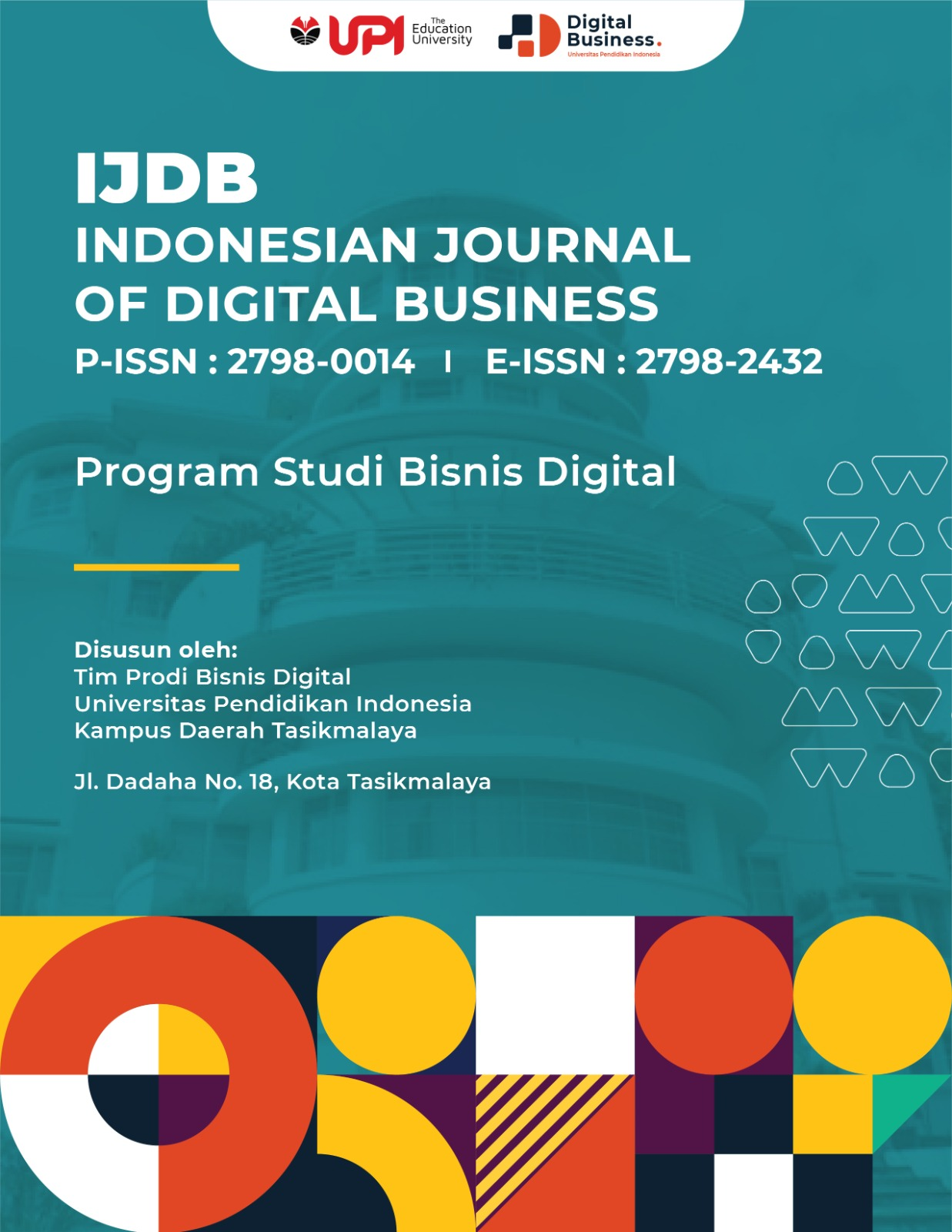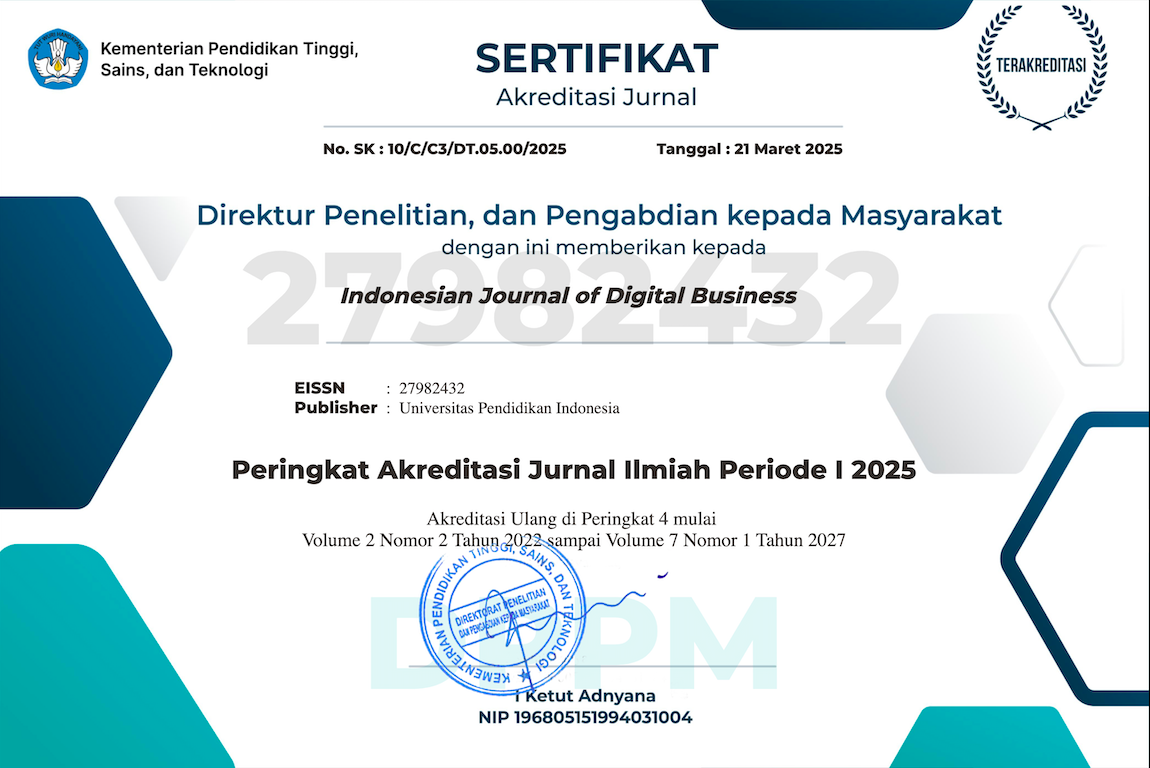Analisis Sentimen Mikrotransaksi dalam Video Game dengan metode Transformers
Abstract
Keywords
Full Text:
PDFReferences
Anggraini, Y., & Prabowo, H. (2024). Transformer- based approach for identifying user sentiment in education apps. Jurnal Ilmu Komputer dan Informatika, 9(1), 89–97.
Devlin, J., Chang, M.-W., Lee, K., & Toutanova, K. (2019). BERT: Pre-training of deep bidirectional transformers for language understanding. Proceedings of the 2019 Conference of the North American Chapter of the Association for Computational Linguistics: Human Language Technologies, 1, 4171–4186.
Drummond, A., & Sauer, J. D. (2018). Video game loot boxes are psychologically akin to gambling. Nature Human Behaviour, 2(8), 530–532.
Fitriani, R., & Utomo, D. (2022). Comparative analysis of sentiment classification using IndoBERT and fastText. Jurnal Sains Data dan Analitik, 6(1), 66–74.
Garvin, L., Thompson, M., & Reyes, P. (2023). Digital
spending and adolescent behavior: The impact of in-game microtransactions. Youth and Media Studies, 19(1), 45–60.
Garvin, M., Pakrashi, D., & Yeung, H. (2023). Psychological drivers and ethical risks of loot box design. Journal of Interactive Media. (Advance online publication)
Garea, D., Smith, A., & Liu, T. (2021). Loot box mechanics and consumer protection: A psychological perspective. Journal of Interactive Media, 14(2), 113–129.
Hamari, J. (2015). Why do people buy virtual goods? Attitude toward virtual good purchases and the influence of purchase motivation. International Journal of Information Management, 35(3), 299–308.
Handayani, R., & Saputra, Y. (2022). Evaluasi model IndoBERT dalam mendeteksi opini pengguna aplikasi transportasi. Jurnal Teknologi Informasi dan Data, 5(2), 56–62.
Ibrahim, H., Nassar, N., & Jalal, A. (2024). Sentiment analysis on user reviews using enhanced BERT models. IEEE Transactions on Computational Social Systems.
Ibrahim, R., Putra, F., & Santosa, D. (2024). Sentiment analysis on user reviews of Astro app using BERT. Journal of Information Technology and Applications, 9(1), 78–85.
Jiang, J., Chen, Y., & Liu, Y. (2021). Sentiment analysis for mobile app reviews using deep learning and BERT. Journal of Systems and Software, 180,111014. https://doi.org/10.1016/j.jss.2021.111014
King, D. L., & Delfabbro, P. H. (2019). Video game monetization (e.g., ‘loot boxes’): A blueprint for practical social responsibility measures. International Journal of Mental Health and Addiction, 17(1), 166–179. https://doi.org/10.1007/s11469-018-0009-3
Lastetria, H. (2024). Penerapan IndoBERT untuk analisis sentimen pada ulasan pengguna Gojek. Jurnal Teknologi dan Informatika, 12(3), 102–109.
Lazuardi, A., & Juarna, R. (2023). Analisis sentimen ulasan pengguna aplikasi JOOX menggunakan BERT. Jurnal Sains Komputer, 11(2), 98–107.
Lee, K., & Kwon, Y. (2021). Impacts of pay-to-win models on player satisfaction: A machine learning approach. Computers in Human Behavior Reports, 3, 100065.
Li, Y., Zhang, C., Liu, H., & He, X. (2022). Leveraging pretrained language models for app review sentiment classification. Information and Software Technology, 143, 106791. https://doi.org/10.1016/j.infsof.2021.106791
Muslim, D. (2024). Analisis sentimen terhadap mobil listrik berbasis BERT di Indonesia. Jurnal Teknologi Hijau, 5(1), 23–31.
Novitasari, E., & Rahmat, A. (2021). Model klasifikasi sentimen berbasis BERT pada review pengguna Tokopedia. Jurnal Teknologi Informasi dan Ilmu Komputer, 7(3), 231–239.
Park, J., & Lee, J. (2022). Transformer-based sentiment classification of game reviews with context enhancement. Information Processing & Management, 59(4), 102925.
Rahman, F., Andini, P., & Chandra, R. (2025). Sentiment analysis of Blibli app reviews using BERT-based approach. Journal of Data Science and Analytics, 8(2), 66–74.
Rahman, M. M., Lee, S., & Wang, X. (2025). Evaluating transformer-based models for gaming review sentiment. ACM Transactions on the Web.
Rachmadani, L. A., Sutrisno, & Wibowo, F. (2022). Digital literacy and consumer behavior of Indonesian gamers: An empirical study. Indonesian Journal of Digital Society, 3(1).
Rachmawati, I., & Nugroho, A. (2021). Analisis sentimen pengguna terhadap iklan dalam aplikasi game menggunakan IndoBERT. Jurnal Sistem Informasi, 17(2), 102–109.
Saraswati, M., Pradana, G., & Nuraini, S. (2023). Cyberbullying sentiment classification in Twitter using BERT. Indonesian Journal of AI and Computing, 6(1), 40–47.
Sun, C., Qiu, X., Xu, Y., & Huang, X. (2019). How to fine-tune BERT for text classification. In China National Conference on Chinese Computational Linguistics (pp. 194–206). https://doi.org/10.1007/978-3-030-32381-3_16
Vaswani, A., Shazeer, N., Parmar, N., Uszkoreit, J., Jones, L., Gomez, A. N., Kaiser, Ł., & Polosukhin, I. (2017). Attention is all you need. In Advances in Neural Information Processing Systems, 30, 5998–6008.
Wang, Z., Liu, X., & Song, Y. (2020). A BERT-based approach for sentiment analysis in financial social media. IEEE Access, 8, 131802–131811.
Widodo, T., & Prasetya, H. (2023). Studi persepsi pengguna terhadap fitur berbayar dalam mobile games di Indonesia. Jurnal Riset Teknologi Informasi, 11(1), 45–52.
Wicaksono, R., & Syah, T. (2024). Sentiment analysis using IndoBERT on Access app user reviews. Journal of Applied Artificial Intelligence, 10(1), 54–61.
Xu, H., & Li, X. (2023). Examining user perception of loot boxes using sentiment analysis and topic modeling. Entertainment Computing, 47, 100514.
Xu, H., Liu, L., Shu, L., & Yu, P. S. (2020). BERT4Rec: Sequential recommendation with bidirectional encoder representations from Transformer. In Proceedings of the 28th ACM International Conference on Information and Knowledge Management (pp. 1441–1450). https://doi.org/10.1145/3357384.3357895
Zhang, L., Sun, J., & Du, Y. (2020). Fine-tuning BERT for sentiment classification of online game comments. Journal of Computer Languages, 58, 100930.
Zendle, D., & Cairns, P. (2018). Video game loot boxes are linked to problem gambling: Results of a large-scale survey. PLOS ONE, 13(11), e0206767.
Zendle, D., Meyer, R., & Over, H. (2020). Adolescents and loot boxes: Links with problem gambling and motivations for purchase. Royal Society Open Science, 7(6), 200384. https://doi.org/10.1098/rsos.200384.
DOI: https://doi.org/10.17509/ijdb.v5i3.90161
Refbacks
- There are currently no refbacks.
Copyright (c) 2025 Universitas Pendidikan Indonesia (UPI)

This work is licensed under a Creative Commons Attribution-ShareAlike 4.0 International License.
Indonesian Journal of Digital Business is published by Universitas Pendidikan Indonesia (UPI)
and managed by Department of Digital Business
Jl. Dr. Setiabudi No.229, Kota Bandung, Indonesia - 40154
View My Stats





1.png)